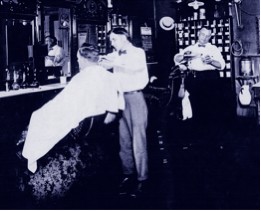Defining Small Business
Americans have historically supported small businesses. We smile when we think of the local restaurant hang-out, the barber shop, the flower shop a mile or so away, or even (to be more nostalgic) the corner grocery store. We appreciate the customer concern and service we receive from these community business people. But what is a "small business"? The definition varies when specifics are considered, but all tend to agree with the basic guidelines provided in the Small Business Act of 1953. A small business is independently owned and operated and is not dominant in its field of operation. The obvious differences appear when the number of employees, the size of sales or receipts and other quantitative factors are considered. For this course, the Small Business Act definition will be used, but we need to keep in mind others' definitions as well.
Small Business Opportunities and Risks
The small business contributes to society and can offer numerous opportunities for an enterprising businessperson. Job opportunities and customer focus are just two benefits society obtains from the multitude of small businesses. An entrepreneur gains many personal opportunities by starting a business—creativity, independence, and potential for success, to name just a few. But these contributions and opportunities are not obtained without traversing many pitfalls and taking many risks along the way. Small businesses are generally started with limited funding, limited business knowledge on the part of the owner, competition hurdles to overcome, and a need for long hours, hard work, and commitment beyond anticipated expectations. For these and many other reasons, the failure rate for the small business is significant compared to the number of new business starts reported each year. Over 60 percent of new businesses fail during the first six years. Businesses that survive the first six years are much more likely to continue on for the next ten years or more. Poor management continues to be the primary cause of failure, and the reason why employees leave for new opportunities.
But the risk of failure and loss has not been great enough to deter entrepreneurial Americans who have been raised to believe that personal initiative, hard work, and innovation are a big piece of the necessary ingredients to make it in our society. Much can be said about operating a small business, but as long as the entrepreneurial spirit and opportunity exist, the small business will continue to flourish. The opportunities presented by small business ownership to women, minorities, and immigrants are causing unprecedented growth. Women-owned businesses are no longer limited to the service sector; women are starting technology and manufacturing companies across the country.
